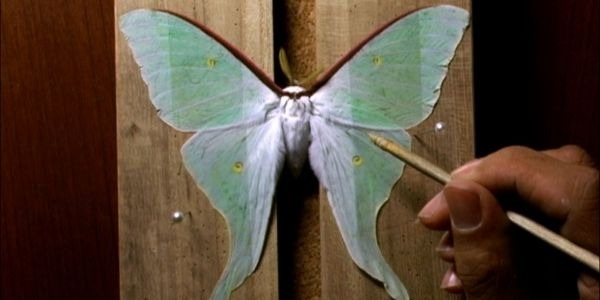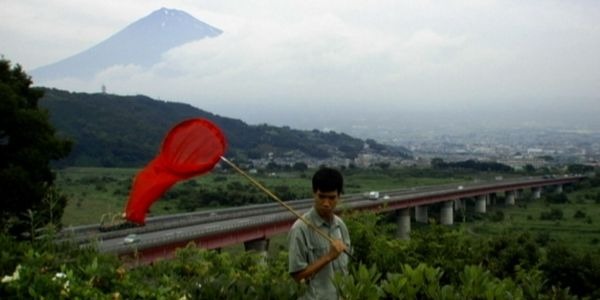BEETLE QUEEN CONQUERS TOKYO: Experimental, Strange and Occasionally Stunning

Data analyst living in Manchester. Writes for Film Inquiry, The…
Beetle Queen Conquers Tokyo is a strange film. As is the case with many great documentary subjects, an unusual subculture is used to define a larger picture. Japan has a fascination with insects, or at least some of the population does. Children pull their parents’ hands towards plastic tubs, which hold beetles the size of their faces. The pet-like nature of these relationships is sweet, even though, between humans and bugs, the emotional connection is more than likely one-sided. But besides the interesting world of the Japanese insect enthusiast, Jessica Oreck’s film is experimental, poetic, and occasionally stunning.
Like A Diary
It’s always worth exploring any one of humankind’s deep passions, no matter how niche or simply off-putting. There is artistry in almost everything, even in the shallowest occupations. I was moved to hear one of Beetle Queen’s subjects discuss how he views his bug collection as a diary. Picking out a specimen he considers unremarkable, he says, “But when I look at it, I can immediately remember where I was, at what time, what the weather was like, what I was feeling.” The film celebrates these people, seeing them as idiosyncratic and admirably enthusiastic about creatures we might sometimes take for granted.

The larger picture is Japan itself and its history of bug appreciation. The narrator reads ancient Japanese poetry, quotes The Tale of Genji, and relays mystical rumination on a number of different species. Some of this is filler; the film’s human specimens are far more touching. However, there are times when the old tales are too lovely to ignore. Oreck and her DP, Sean Price Williams (of Safdie Brothers and Alex Ross Perry fame), have a good time with fireflies in particular, and one scene is as wondrous as any modern documentary film has ever been. The fireflies seem to fly at each other in the dark night, and the narrator explains how some believe these fireflies are vessels for the souls of fallen warriors of ancient wars, fighting battles to this day.
Ambient And Other Music
I’ve had a hard time sourcing a comprehensive tracklist, but Amazon and IMDB list the names Haruomi Hosono, Ryuichi Sakamoto, and Masami Tsuchiya, among a few others, including JC Morrison and Nate Shaw, who wrote the original music. Is it too obvious to use music from some of Japan’s modernist electronic masters when taking on modern Japanese culture? Possibly. But the effect, not least because of the music’s undeniable appeal, is harmonious.

There is also subtle humour to the film. A man wagging his feet on a train is cut with the shadow of an insect wriggling inside of its cocoon. I was surprised to see that the filmmakers’ kept any comparisons between busy Japanese streets and bustling ants nests to a minimum. The ties are acknowledged, but not in any conclusive way. Watching grown men stroke their caterpillars like they would a cat, there is never anything more than respect for what gives these people joy. Beetle Queen Conquers Tokyo is like the best of ambient music: comforting, emotive, overwhelming at times, and always worth the time spent giving it your full attention.
What’s your favourite documentary about the weird and wonderful? Let us know in the comments!
Beetle Queen Conquers Tokyo is available to stream on MUBI.
Does content like this matter to you?
Become a Member and support film journalism. Unlock access to all of Film Inquiry`s great articles. Join a community of like-minded readers who are passionate about cinema - get access to our private members Network, give back to independent filmmakers, and more.
Data analyst living in Manchester. Writes for Film Inquiry, The State Of The Arts, Vague Visages.













